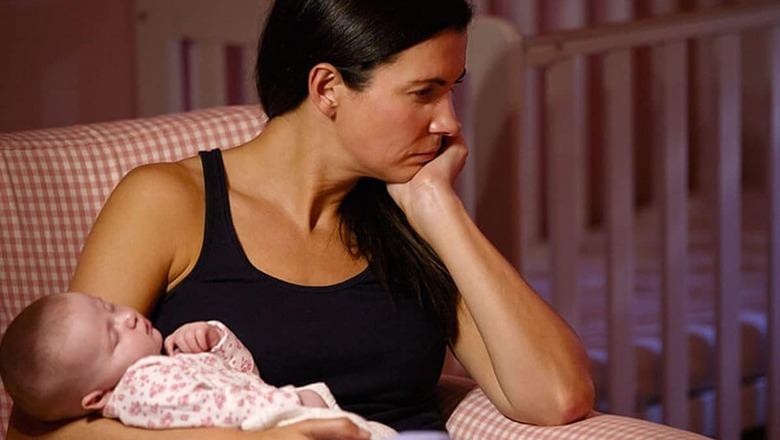
views
Did you know? Unpleasant breastfeeding experiences can lead to depression in some women. Yes, that’s right! In the below article, we help you to understand why women should seek timely help when it comes to problems associated with breastfeeding.
Women, if you find yourself feeling down or experiencing overwhelming sadness or depression when breastfeeding then you might be dealing with a condition known as D-MER or Dysphoric Milk Ejection Reflex. However, do not panic as you are not alone. There are many women who have issues linked to breastfeeding and may find themselves in trouble. New mothers can sometimes have postpartum depression due to the guilt of not being able to breastfeed the baby properly. Here, we list out a few factors that can set depression when it comes to breastfeeding women.
The Causes of Depression in Breastfeeding Mothers-
- Breastfeeding is often portrayed as a blissful bonding experience between mother and child, but what if it could also trigger depression? According to studies, there is a link between breastfeeding and postpartum depression. It is believed that hormonal changes during breastfeeding could play a role in triggering or exacerbating depressive symptoms. Hence, women who experienced breastfeeding difficulties were more likely to develop symptoms of postpartum depression. These difficulties included issues with latch, pain or discomfort while nursing, and concerns about low milk supply.
- Breastfeeding mothers are unable to maintain a well-balanced lifestyle. Factors like an unhealthy diet, the stress of the baby, and lack of sleep can also lead to depression.
- The emotional toll of these challenges added to the already overwhelming demands of caring for a newborn can lead to feelings of inadequacy and increased risk for depressive episodes.
- Lack of support from the partner, or any medical problem that is preventing the baby from breastfeeding can also lead to stress and ultimately depression.
- Furthermore, societal pressure surrounding breastfeeding may also contribute to postpartum depression. Many women feel immense pressure to exclusively breastfeed their babies, which can lead to feelings of guilt and self-doubt if they encounter difficulties or cannot meet their own expectations. The constant comparison with other mothers who seemingly effortlessly breastfeed adds an unnecessary burden on new moms already navigating the challenges of motherhood. It is important for society as a whole to recognize that formula feeding is a valid option that can alleviate stress levels for struggling mothers.
The Signs of Depression in Women:
- They will often be frustrated, irritated, tense, agitated, and lonely.
- Women will not take any interest in the activities that they once liked. They may start binge-eating, and feel restless and sick. Such women will also have poor self-esteem and feel uneasy and uncomfortable.
- Women will be overwhelmed and experience a wide range of emotions at the same time due to emotional instability. They will have constant mood swings.
- New mothers having depression may try to wean the baby early just to avoid the problems related to breastfeeding.
The Last Word:
Breastfeeding mothers should take counseling if required. However, they should be in regular touch with their lactation expert to avoid any issues while breastfeeding the baby. Remember that breast milk does wonders for the baby’s health.


















Comments
0 comment